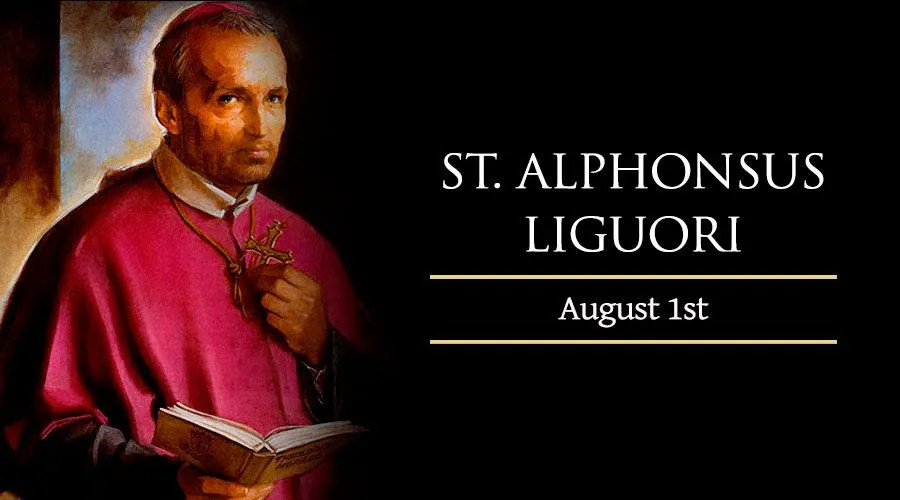Sub-Saharan Africa, 01 August, 2025 / 11:15 am (ACI Africa).
St. Alphonsus Liguori is a doctor of the Church who is widely known for his contribution to moral theology and his great kindness.
He was born in 1696 in Naples to a well-respected family, and was the oldest of 7 children. His father was Don Joseph de' Liguori, a naval officer and Captain of the Royal Galleys, and his mother came from Spanish descent. He was very intelligent, even as a young boy. As a boy of great aptitude, he picked up many things very quickly. St. Alphonsus did not attend school; rather, he was taught by tutors at home where his father kept a watchful eye. Moreover, he practiced the harpsichord for 3 hours a day at the heed of his father and soon became a virtuoso at the age of 13. For recreation, he was an equestrian, fencer, and card player. As grew into a young man, he developed an inclination for opera. He was much more interested in listening to the music than watching the performance. St. Alphonsus would often take his spectacles off, which aided his myopic eyes, in order to merely listen. While theatre in Naples was in a relatively good state, the young saint developed an ascetic aversion to perhaps what he viewed as gaudy displays. He had strongly refused participation in a parlor play.
At the age of 16, he became a doctor of civil law on January 21, 1713, though by law, 20 was the set age. After studying for the bar, he practiced law at the age of 19 in the courts. It is said in his 8 years as a lawyer, he never lost a case. Although, he resigned from a brilliant career as a lawyer in 1723 when he lost a case because he overlooked a small, but important, piece of evidence.
His resignation, however, proved profitable for the Church. He entered the seminary and was ordained three years later in 1726. He soon became a sought-after preacher and confessor in Naples. His so sermons were simple and well organized that they appealed to all people, both learned and unlearned. However, his time as a diocesan priest was short-lived: in 1732, he went to Scala and founded the Redemptorists, a preaching order.
He was a great moral theologian and his famous book, “Moral Theology”, was published in 1748. Thirty years later, he was appointed bishop, and he retired in 1775. He died just over 10 years later in 1787, and was canonized in 1839.






